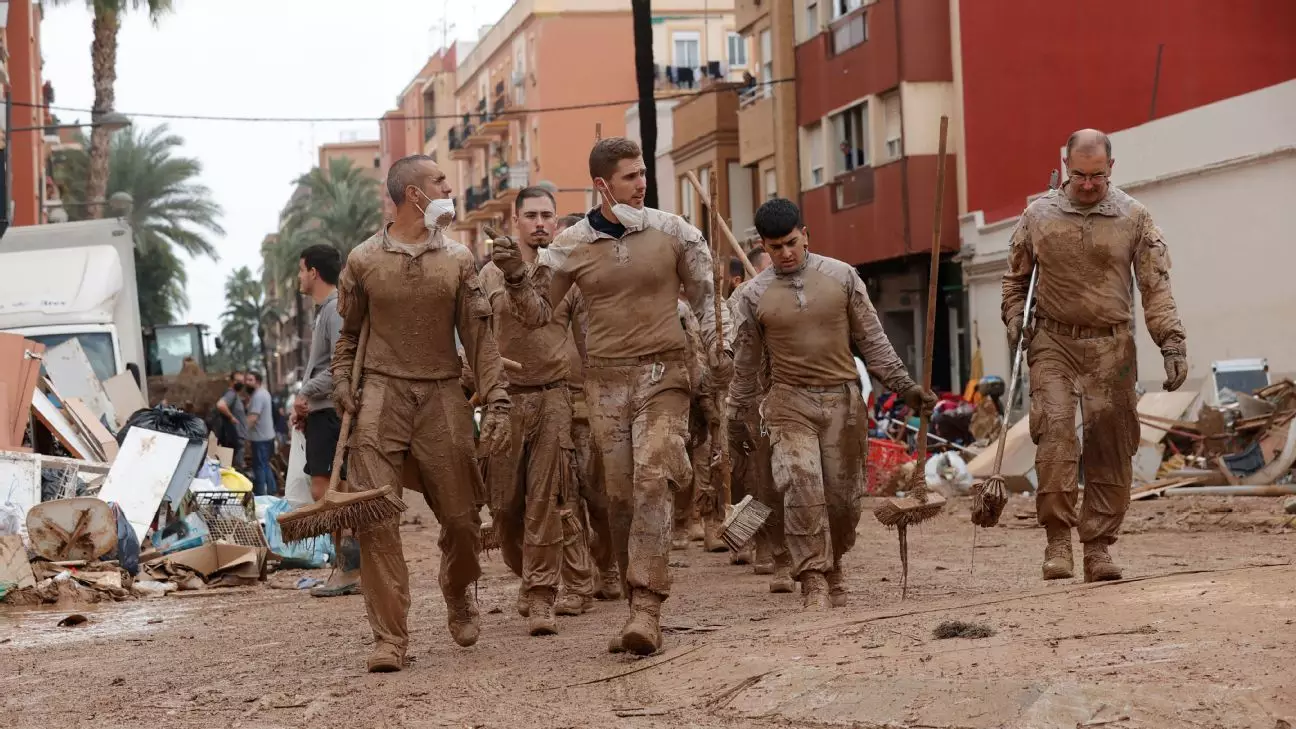In late October 2023, a catastrophic event unfolded in Valencia as severe flash flooding claimed the lives of at least 217 individuals, leaving lasting devastation in its wake. The torrential rains that struck the region on October 29 not only caused physical destruction but also disrupted the local sports scene, particularly affecting the Copa del Rey fixtures that had been scheduled in the wake of the tragedy. The decision to postpone five crucial matches not only highlights the urgent need for community recovery but also reflects the ongoing struggle to balance sporting events with the realities of human loss and suffering.
Initially slated for the week following the disaster, matches including Valencia’s fixture against Parla and Levante’s against Pontevedra were postponed, with hopes that recovery efforts could proceed swiftly. However, the Spanish Football Federation (RFEF) announced on a recent Monday that the matches would need to be pushed further back, underscoring the severity of the situation. The rescheduled dates have been set for later in November, with Valencia set to visit Parla on the 26th and Levante scheduled to play Pontevedra on the 19th. This approach speaks volumes about the federation’s awareness of the recovery process; prioritizing the well-being of the community over the immediate resumption of football shows a commendable level of sensitivity toward the affected population.
The repercussions of this disaster extend beyond the immediate backdrop of cancelled matches. Even more significantly, the postponement of other key games, including Valencia’s LaLiga showdowns against Real Madrid and Villarreal’s encounter with Rayo Vallecano, has created an overarching conversation about the responsibilities of sport in times of crisis. Prominent figures in the football community, such as Real Madrid’s coach Carlo Ancelotti, have voiced strong opinions advocating that all football activities in Spain should have been halted during this period of mourning. This sentiment prompts a profound reflection on how sports should respond to national tragedies, as the lines between entertainment and societal responsibility become increasingly blurred.
The flooding has not only devastated lives but also significantly impacted the local economy and infrastructure. Emergency services and the military are actively engaged in recovery efforts, yet the full scale of the disaster is still unfolding. With many neighborhoods still struggling to reclaim their normalcy, it remains crucial for the footballing community to align its actions with the sentiments of the affected populace.
The rescheduling of these matches must serve as a reminder that while sport can offer a platform for unity and healing, it should never overshadow the pressing needs of the community it serves. Amid the cheers and chants that will surely accompany these games when they eventually take place, the scars of loss and devastation will linger—a testament to the resilience required not only in sports but within society as a whole.

